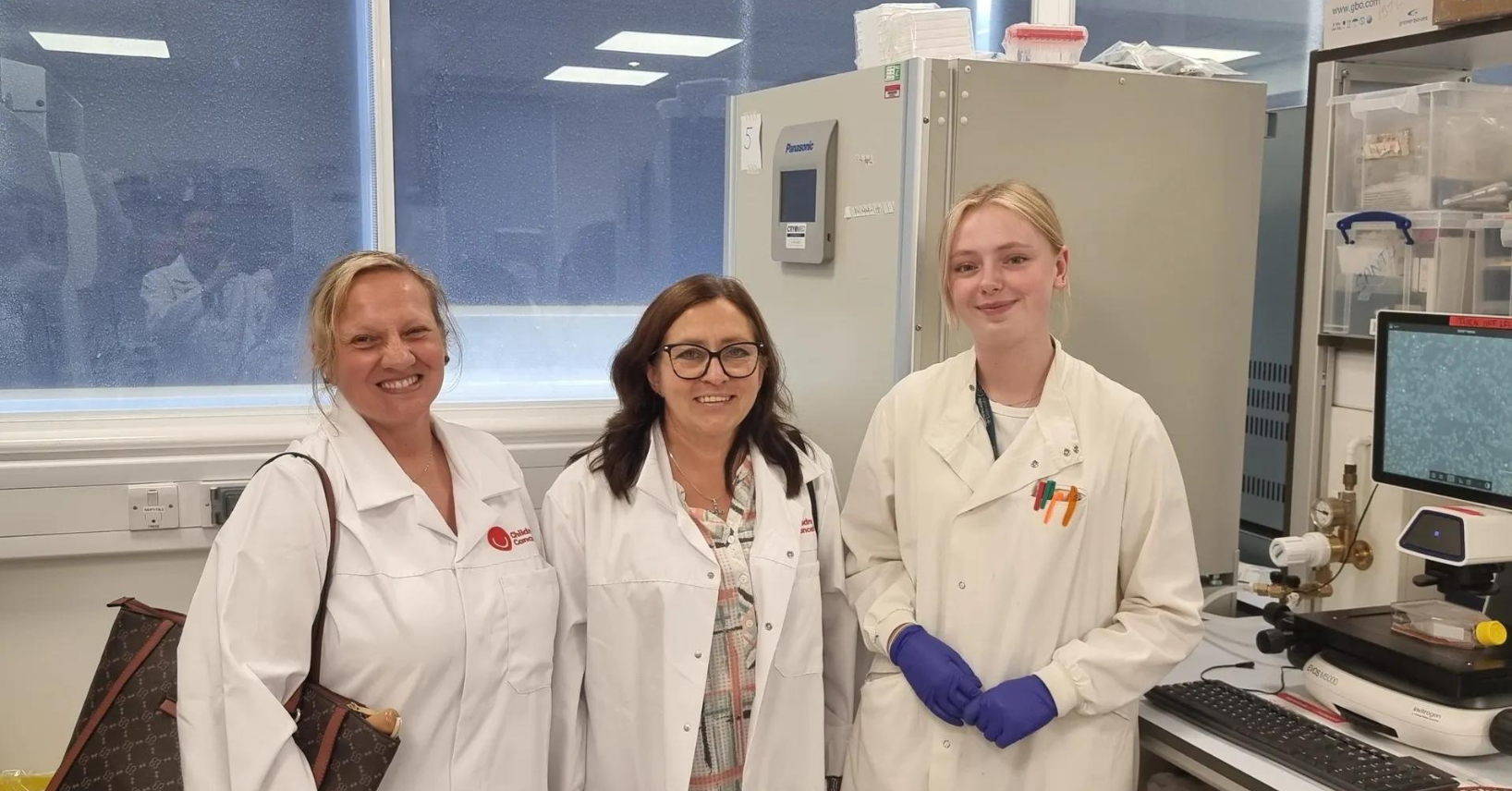Children’s Cancer Awareness Month: Inspiring graduate tackles childhood leukaemia with Combat Cancer’s support
Phoebe Snow, a Biochemistry graduate and current Cancer Studies PhD student at Newcastle University, is making significant strides in childhood cancer research.
24 September 2024
Combat Cancer is a UK organisation that supports leading cancer research institutions in their efforts to find cures for various cancers and improve the quality of life for cancer patients after diagnosis.
Combat Cancer’s sponsorship pledge
Since 2018, Combat Cancer has sponsored Newcastle University’s Wolfson Childhood Cancer Research Centre. In July 2023, they pledged £80,000 over four years to support PhD student Phoebe Snow’s research into new treatments for an aggressive form of leukaemia.
Meet Phoebe Snow
Phoebe completed her undergraduate degree in Biochemistry and her Master’s in Cancer Research at Newcastle University. During the pandemic, she discovered her passion for bioinformatics, a data-driven approach to research that has become integral to her work. She continued her academic journey as a Research Assistant before securing the PhD position funded by Combat Cancer. Phoebe’s research is focused on understanding a rare subtype of childhood leukaemia with a poor prognosis.

The Importance of Phoebe’s Research
Phoebe’s PhD project builds on her work as a Research Assistant, where she developed a new technique to study MYC protein’s role in cancer development including understanding how the MYC protein regulates other genes in high-risk leukaemia patients. MYC is a protein that binds to DNA and can switch genes on or off, contributing to the development and growth of cancer.
“I’m eager to continue this research to help find novel treatments for this rare group of leukaemia patients.
“Thanks to the support I’ve received, I’m able to work on identifying how the MYC protein contributes to the progression of this cancer.”
By identifying where MYC binds to the genetic code in these patients, Phoebe hopes to uncover potential new treatment targets for this aggressive form of leukaemia.
What’s Next?
Phoebe has already made significant strides in her research by optimising a new laboratory technique to study MYC binding in leukaemia cells. She will continue to refine this technique and apply it to patient samples, using bioinformatics to analyse the resulting data.
The research is still in its early stages, but Phoebe remains motivated by the potential impact her findings could have on future treatments for childhood leukaemia.
“Thank you so much for your support. This project is incredibly challenging, but I’m driven by the knowledge my work could make a huge difference to the lives of children and young people with this disease. I’m thankful for the opportunity to contribute to this field, and I’m excited to continue this work. I would never have had this opportunity without your donation.”

.png)